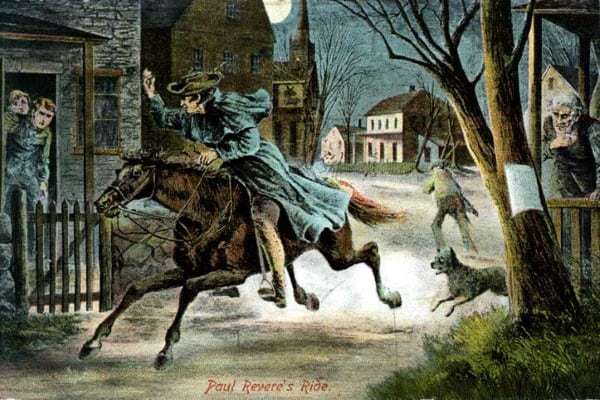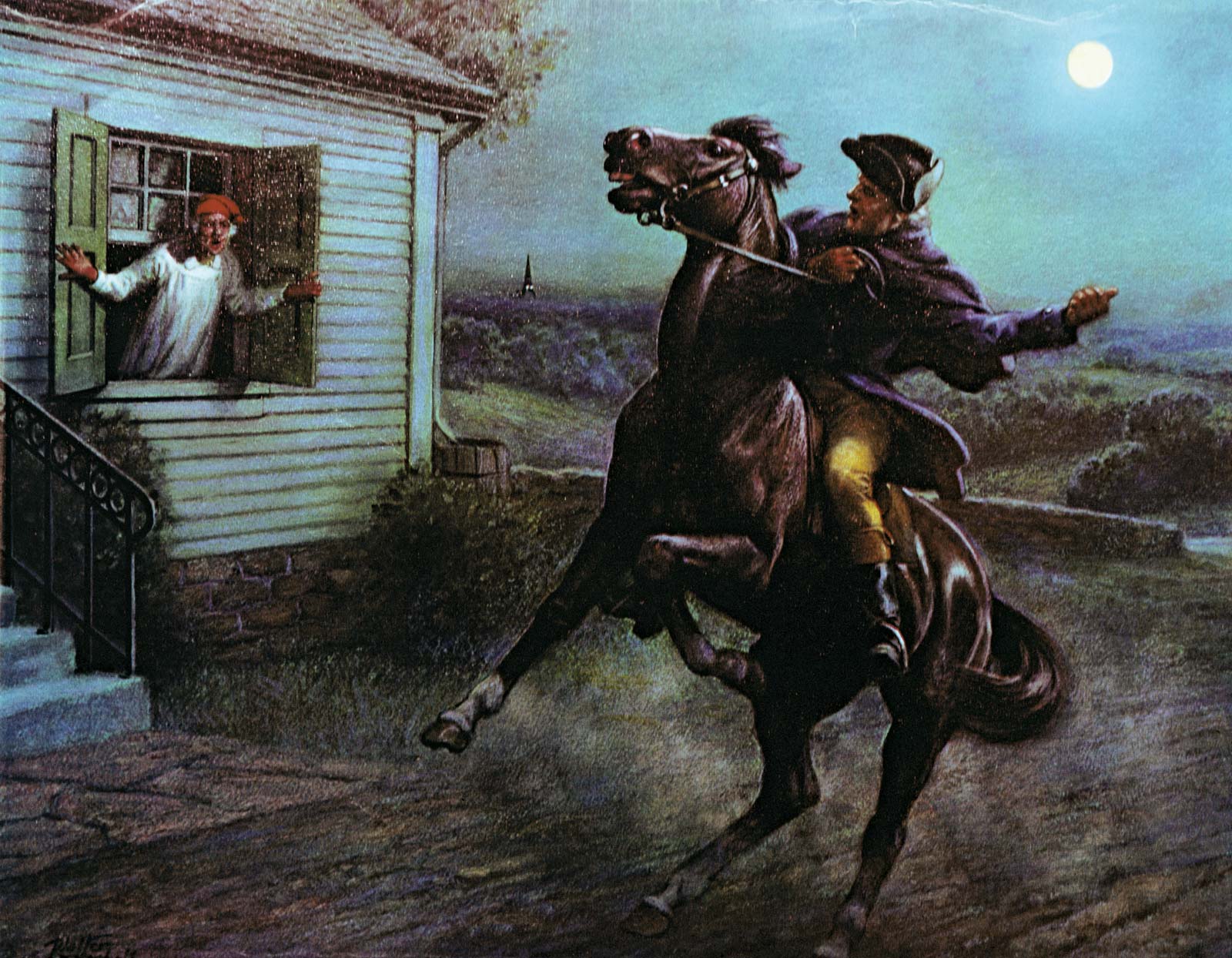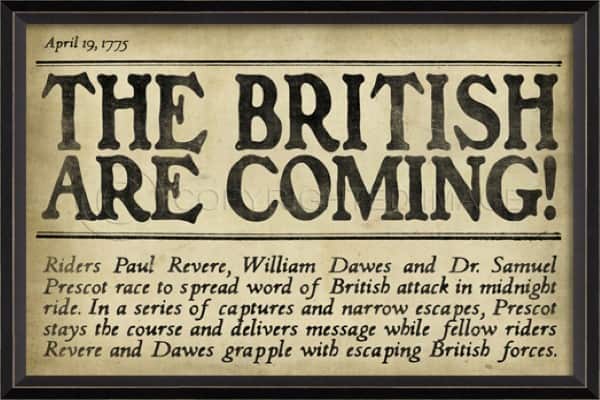




On April 18, 1775, British troops march out of Boston on a mission to confiscate the American arsenal at Concord and to capture Patriot leaders Samuel Adams and John Hancock, known to be hiding at Lexington. As the British departed, Boston Patriots Paul Revere and William Dawes set out on horseback from the city to warn Adams and Hancock and rouse the Minutemen.
By 1775, tensions between the American colonies and the British government had approached the breaking point, especially in Massachusetts, where Patriot leaders formed a shadow revolutionary government and trained militias to prepare for armed conflict with the British troops occupying Boston. In the spring of 1775, General Thomas Gage, the British governor of Massachusetts, received instructions from Great Britain to seize all stores of weapons and gunpowder accessible to the American insurgents. On April 18, he ordered British troops to march against Concord and Lexington.
The Boston Patriots had been preparing for such a British military action for some time, and, upon learning of the British plan, Revere and Dawes set off across the Massachusetts countryside. They took separate routes in case one of them was captured: Dawes left the city via the Boston Neck peninsula and Revere crossed the Charles River to Charlestown by boat. As the two couriers made their way, Patriots in Charlestown waited for a signal from Boston informing them of the British troop movement. As previously agreed, one lantern would be hung in the steeple of Boston’s Old North Church, the highest point in the city, if the British were marching out of the city by Boston Neck, and two lanterns would be hung if they were crossing the Charles River to Cambridge. Two lanterns were hung, and the armed Patriots set out for Lexington and Concord accordingly. Along the way, Revere and Dawes roused hundreds of Minutemen, who armed themselves and set out to oppose the British.
Revere arrived in Lexington shortly before Dawes, but together they warned Adams and Hancock and then set out for Concord. Along the way, they were joined by Samuel Prescott, a young Patriot who had been riding home after visiting a lady friend. Early on the morning of April 19, a British patrol captured Revere, and Dawes lost his horse, forcing him to walk back to Lexington on foot. However, Prescott escaped and rode on to Concord to warn the Patriots there. After being roughly questioned for an hour or two, Revere was released when the patrol heard Minutemen alarm guns being fired on their approach to Lexington.
About 5 a.m. on April 19, 700 British troops under Major John Pitcairn arrived at the town to find a 77-man-strong colonial militia under Captain John Parker waiting for them on Lexington’s common green. Pitcairn ordered the outnumbered Patriots to disperse, and after a moment’s hesitation, the Americans began to drift off the green. Suddenly, the “shot heard around the world” was fired from an undetermined gun, and a cloud of musket smoke soon covered the green. When the brief Battle of Lexington ended, a handful of Americans lay dead and several others wounded. The American Revolution had begun.
It is my sincere desire to provide readers of this site with the best unbiased information available, and a forum where it can be discussed openly, as our Founders intended. But it is not easy nor inexpensive to do so, especially when those who wish to prevent us from making the truth known, attack us without mercy on all fronts on a daily basis. So each time you visit the site, I would ask that you consider the value that you receive and have received from The Burning Platform and the community of which you are a vital part. I can't do it all alone, and I need your help and support to keep it alive. Please consider contributing an amount commensurate to the value that you receive from this site and community, or even by becoming a sustaining supporter through periodic contributions. [Burning Platform LLC - PO Box 1520 Kulpsville, PA 19443] or Paypal
-----------------------------------------------------
To donate via Stripe, click here.
-----------------------------------------------------
Use promo code ILMF2, and save up to 66% on all MyPillow purchases. (The Burning Platform benefits when you use this promo code.)






The militia then closed in on the British troops at the North Bridge. Shots were fired again, and the British scattered back into Concord. A few hours later, Smith organized his troops to retreat from Concord. However, they again met with resistance from the militia outside of town. They continued to battle all day, fighting all the way back to Charlestown. By the end of the day, a few hundred men lay dead or wounded.
What’s your idea about what musket warfare was like? I lead and trained snipers, but I was never a sniper.
To me it seems like it necessitated a certain organization that modern weapons don’t. And I wonder about that social implication to how war can be arranged. For example, you have to have a formation to be able to fire a volley that has a chance of doing damage to the enemy, so you have to have organization to rally such a formation. My experience is that organizations with modern weaponry are diffuse and nebulous, but therefore lacking in any strategic potential.
You have no idea the terror of 24 months in Iraq knowing all it takes is one halfway trained unit to destroy us. It is not hard to defend territory. Almost every time we rand into one, luck and fate were on our side. The other couple of times was a clusterfuck on both sides where we all bugged out on the same level. I thank Christ nobody ever showed up on my NVGs in a building.